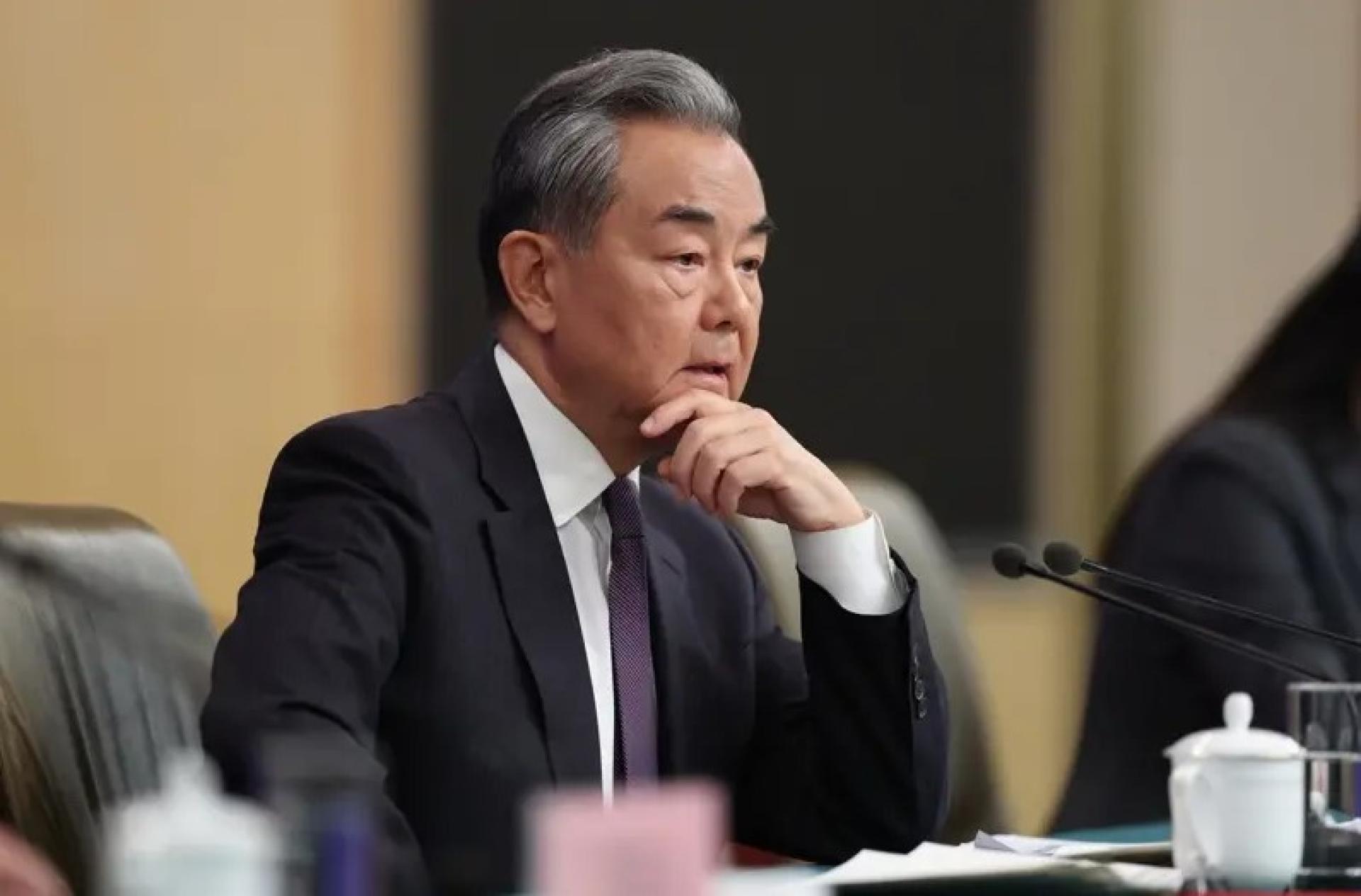(China, 25th) – Member of the Political Bureau of the Communist Party of China and Chinese Foreign Minister Wang Yi, during a meeting with South Korean presidential envoy Park Byeong-seug, emphasized that China’s policy towards South Korea remains stable and consistent, and called on both sides to uphold the original aspiration of establishing diplomatic relations, expand common interests, and properly handle sensitive issues.
The Chinese Ministry of Foreign Affairs published on its official website that Wang Yi met with Park Byeong-seug in Beijing on Sunday (August 24), noting that August 24 marks the 33rd anniversary of the establishment of diplomatic ties between China and South Korea, and that the relationship between the two countries is currently at an important period of improvement and development. Wang said China has always placed great importance on relations with South Korea.
Wang Yi stated that good-neighborliness, seeking common ground while reserving differences, and expanding cooperation are the right choices. China’s policy towards South Korea maintains stability and continuity. Both sides should uphold the original aspiration of establishing diplomatic relations, firmly stay on the path of friendship, expand common interests, improve public sentiment, properly handle sensitive issues, and promote China-South Korea relations along the right track for long-term steady progress.
He also said that China and South Korea should join hands to safeguard the international free trade system, jointly oppose trade protectionism, practice the concept of multilateralism, strengthen communication and coordination within frameworks such as the United Nations, and effectively respond to regional and even global challenges.
According to Yonhap News Agency, Park Byeong-seug, leading the presidential special envoy delegation, met with Wang Yi and delivered a personal letter from South Korean President Lee Jae-myung. Both sides exchanged views on promoting the South Korea-China strategic cooperative partnership.
Park Byeong-seug said that the new South Korean government attaches great importance to South Korea-China relations and hopes that through this visit to China, both sides can jointly bring the bilateral relationship, which has faced setbacks in recent years, back on track.
He also said that President Lee Jae-myung looks forward to creating a strategic cooperative partnership that genuinely benefits the people of both countries, and once again invited Chinese President Xi Jinping to attend the informal APEC Economic Leaders' Meeting to be held in Gyeongju, South Korea, in October.
Yonhap News Agency also reported that both sides exchanged greetings; Wang Yi highly praised Park Byeong-seug's longstanding positive contributions to the development of China-South Korea relations, and Park Byeong-seug referred to Wang Yi as an old friend.
The envoy delegation is visiting China from the 24th to the 27th, with members including Kim Tae-nyeon and Park Jeong, lawmakers from the ruling Democratic Party, as well as Noh Jae-heon, son of the late former President Roh Tae-woo and director of the East Asia Cultural Center. Reports say the delegation will also meet with other Chinese leaders, including Vice President Han Zheng and Zhao Leji, Chairman of the Standing Committee of the National People's Congress.
The Chinese Ministry of Foreign Affairs published on its official website that Wang Yi met with Park Byeong-seug in Beijing on Sunday (August 24), noting that August 24 marks the 33rd anniversary of the establishment of diplomatic ties between China and South Korea, and that the relationship between the two countries is currently at an important period of improvement and development. Wang said China has always placed great importance on relations with South Korea.
Wang Yi stated that good-neighborliness, seeking common ground while reserving differences, and expanding cooperation are the right choices. China’s policy towards South Korea maintains stability and continuity. Both sides should uphold the original aspiration of establishing diplomatic relations, firmly stay on the path of friendship, expand common interests, improve public sentiment, properly handle sensitive issues, and promote China-South Korea relations along the right track for long-term steady progress.
He also said that China and South Korea should join hands to safeguard the international free trade system, jointly oppose trade protectionism, practice the concept of multilateralism, strengthen communication and coordination within frameworks such as the United Nations, and effectively respond to regional and even global challenges.
According to Yonhap News Agency, Park Byeong-seug, leading the presidential special envoy delegation, met with Wang Yi and delivered a personal letter from South Korean President Lee Jae-myung. Both sides exchanged views on promoting the South Korea-China strategic cooperative partnership.
Park Byeong-seug said that the new South Korean government attaches great importance to South Korea-China relations and hopes that through this visit to China, both sides can jointly bring the bilateral relationship, which has faced setbacks in recent years, back on track.
He also said that President Lee Jae-myung looks forward to creating a strategic cooperative partnership that genuinely benefits the people of both countries, and once again invited Chinese President Xi Jinping to attend the informal APEC Economic Leaders' Meeting to be held in Gyeongju, South Korea, in October.
Yonhap News Agency also reported that both sides exchanged greetings; Wang Yi highly praised Park Byeong-seug's longstanding positive contributions to the development of China-South Korea relations, and Park Byeong-seug referred to Wang Yi as an old friend.
The envoy delegation is visiting China from the 24th to the 27th, with members including Kim Tae-nyeon and Park Jeong, lawmakers from the ruling Democratic Party, as well as Noh Jae-heon, son of the late former President Roh Tae-woo and director of the East Asia Cultural Center. Reports say the delegation will also meet with other Chinese leaders, including Vice President Han Zheng and Zhao Leji, Chairman of the Standing Committee of the National People's Congress.
